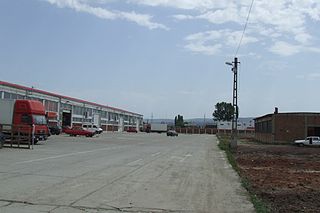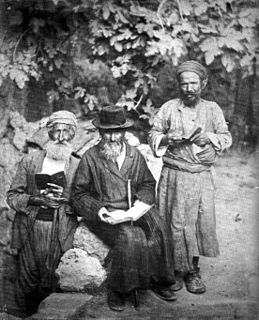 W
WAaron the Tyrant or Aron Vodă, sometimes credited as Aron Emanoil or Emanuel Aaron, was twice the Prince of Moldavia: between September 1591 and June 1592, and October 1592 to May 3 or 4, 1595. He was of mysterious origin, and possibly of Jewish extraction, but presented himself as the son of Alexandru Lăpușneanu, and was recognized as such in some circles. His appointment by the Ottoman Empire followed an informal race, during which candidates engaging in particularly exorbitant bribery and accepted unprecedented increases of the haraç. Though resented by the Janissaries, he was backed by a powerful lobby, comprising Solomon Ashkenazi, Edward Barton, Hoca Sadeddin Efendi, and Patriarch Jeremias II. Victorious but heavily indebted, Aaron allowed his creditors to interfere directly in fiscal policy, while adopting methods of extortion against the taxpaying peasantry. He eventually turned against the bankers, staging the execution of Bartolomeo Brutti.
 W
WJews settled in Transcarpathia as early as the 15th century. Local rulers allowed Jewish citizens to own land and practice many trades that were precluded to them in other locations. Jews settled in The region over timeand established communities that built great synagogues, schools, printing houses, businesses, and vineyards. By the end of the 19th century there were as many as 150,000 Jews living in the region.
 W
WGala Galaction was a Romanian Orthodox clergyman and theologian, writer, journalist, left-wing activist, as well as a political figure of the People's Republic of Romania. Contrary to the spirit of the time, he was a promoter of tolerance towards the Jewish minority.
 W
WThe General Jewish Labour Bund in Romania was a Jewish socialist party in Romania, adhering to the political line of the General Jewish Labour Bund. Founded in 1922, shortly after the establishment of Greater Romania, it united Jewish socialists in Bukovina, Bessarabia and the Romanian Old Kingdom. Standing for the lay wing of the Jewish representative movement, the Romanian Bund had atheistic leanings and offered an alternative to the mainstream Jewish organization. Like other Bundist groups, but unlike the Marxist-inspired Poale Zion bodies of Bessarabia, it rejected Zionism.
 W
WThe Jewish Museum in Bucharest, Romania is located in the former Templul Unirea Sfântă synagogue, which survived the World War II.
 W
WThe Jewish Party, in full Jewish Party of Romania or Jewish National Party, was a right-wing political party in Romania, representing Jewish community interests. It originally followed an undercurrent of Zionism, promoting communitarianism as a prerequisite of resettlement in Palestine, and later progressed toward Religious Zionism and Revisionism. Founded by Tivadar Fischer, József Fischer, and Adolphe Stern, it had particularly strong sections in Transylvania and Bessarabia. In the Old Kingdom, where it registered least support, it was mainly represented by A. L. Zissu and Renașterea Noastră newspaper.
 W
WThe Kolozsvár Ghetto was one of the lesser-known Jewish ghettos of the World War II era. The ghetto was located in the city of Kolozsvár, then Kingdom of Hungary. Between the signing of the Treaty of Trianon in 1920 and the Second Vienna Award in 1940, Cluj was a part of "Greater Romania". In 1947, the Paris Peace Treaties gave back Northern Transylvania to Romania.
 W
WThis list of synagogues in Romania contains active, otherwise used and destroyed synagogues in Romania. The list of Romanian synagogues is not necessarily complete, as only a negligible number of sources testify to the existence of some synagogues.
 W
WMaccabi or Macabi Bucureşti, later known as Ciocanul, was a Romanian sport club, representing the Jewish community, akin to the famous Hakoah Vienna. Named after the Maccabees and centering on football competitions, it was the first Jewish side to send a player, the goalkeeper Samuel Zauber, to the FIFA World Cup.
 W
WMăeriște is a commune located in Sălaj County, Crișana, Romania.
 W
WThe history of the Jews in Moldova reaches back several centuries. Bessarabian Jews have been living in the area for some time. Today, the Jewish community living in Moldova number less than 4,000 according to one estimate while local estimates put the number at 15–20,000 Jews and their family members.
 W
WMV Mefküre was a Turkish wooden-hulled motor schooner chartered to carry Jewish Holocaust refugees from Romania to Istanbul, sailing under the Turkish and Red Cross flags. On 5 August 1944 a Soviet submarine sank her in the Black Sea by shellfire, killing more than 300 refugees.
 W
WNadvorna is a Hasidic rabbinical dynasty within ultra-Orthodox Judaism. The dynasty derives its name from the town of Nadvorna, known in Ukrainian as Nadvirna. The town was located in the province of East Galicia in the Austro-Hungarian Empire, until World War I; and between the two world wars, the town was located in eastern Poland.
 W
WJoseph Nasi, known in Portuguese as João Micas, was a Portuguese Sephardi diplomat and administrator, member of the House of Mendes/Benveniste, nephew of Dona Gracia Mendes Nasi, and an influential figure in the Ottoman Empire during the rules of both Sultan Suleiman I and his son Selim II. He was a great benefactor of the Jewish people.
 W
WThe Oradea ghetto was one of the Nazi-era ghettos for European Jews during World War II. It was located in the city of Oradea in Bihor County, Transylvania, now part of Romania but administered as part of Bihar County by the Kingdom of Hungary from the 1940 Second Vienna Award's grant of Northern Transylvania until late 1944. The ghetto was active in the spring of 1944, following Operation Margarethe.
 W
WPoor Dionis or Poor Dionysus is an 1872 prose work by Romanian poet Mihai Eminescu, classified by scholars as either a novel, a novella or a modern fairy tale. It is a liberal interpretation of contemporary German philosophy and ancient motifs, discussing themes such as time travel and reincarnation through the lens of post-Kantian idealism. Its eponymous central character, a daydreaming scholar, moves between selves over time and space, between his miserable home, his earlier existence as a monk in 15th-century Moldavia, and his higher-level existence as a celestial Zoroaster.
 W
WThe Sudiți were inhabitants of the Danubian Principalities who, for the latter stage of the 18th and a large part of the 19th century — during and after the Phanariote period of rule, were placed under the protection of foreign states as reward for particular services or in exchange for payment.
 W
WThe Yeshua Tova Synagogue in Bucharest, Romania, is the city's oldest synagogue, serving the local Chabad Jewish community.